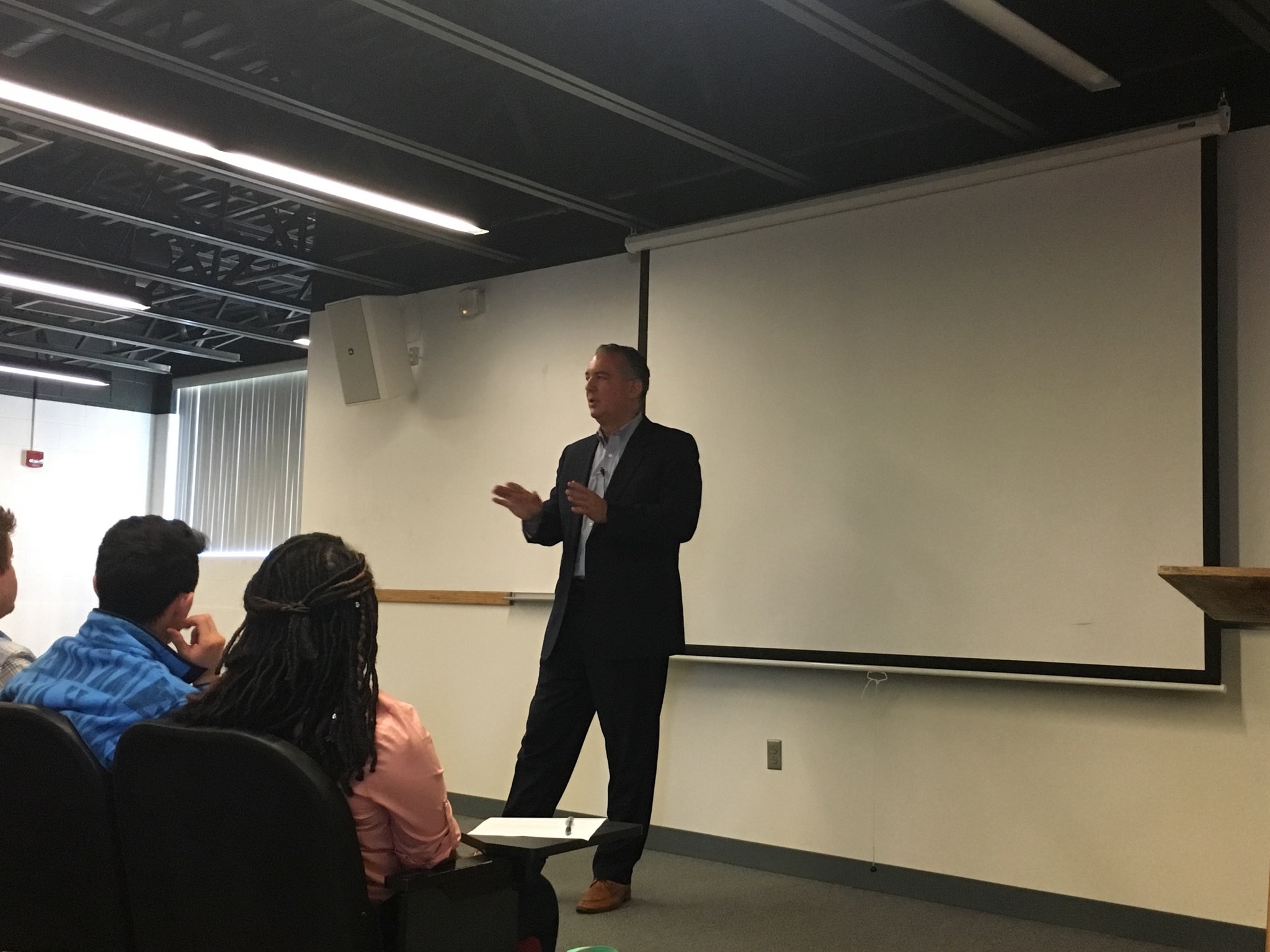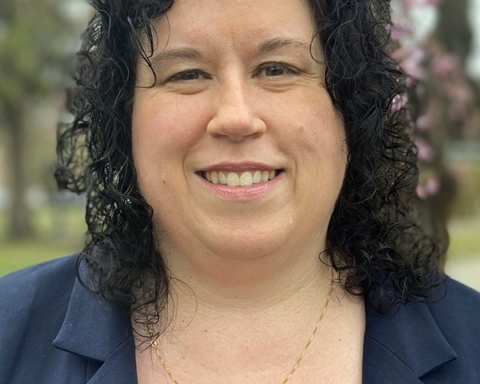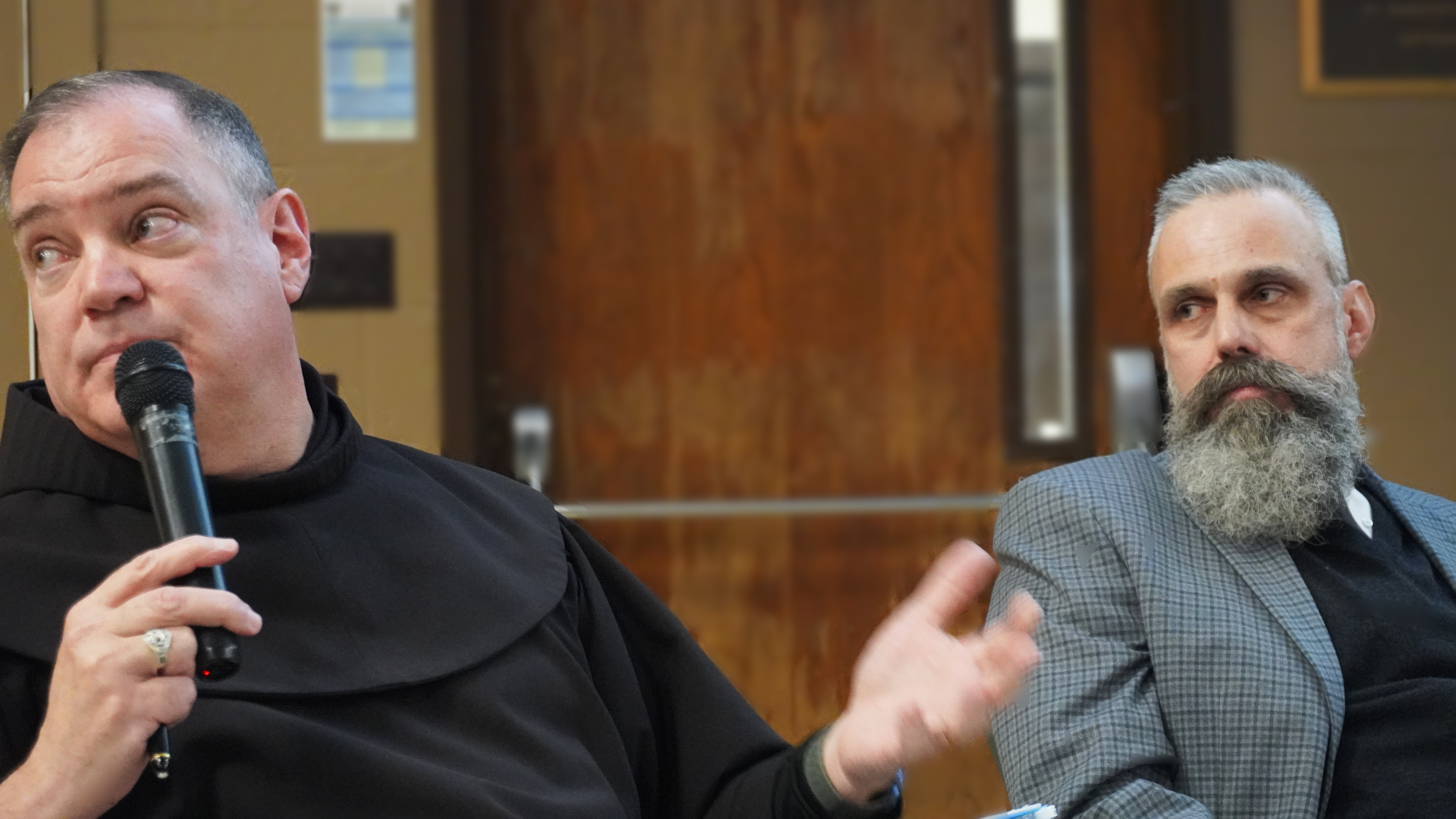By Jenn Eng
News Editor
Jim Joseph, dean of the Madden School of Business at Le Moyne College, spoke to SBU students and faculty this Tuesday in the Walsh Science Center Auditorium.
Joseph has extensive experience in business with a certification in public accounting and has served in many positions including president and chief executive officer at a flatware and silverware company, Oneida Limited.
At his talk, “Leading with Compassion, Cultural Awareness and Ethics in the 21st Century’s Global Business Arena,” he spoke about ethical and compassionate practices in the business world, relating it to his personal experiences.
Joseph focused on unethical treatment of workers in Oneida’s factory in Mexico during the late ‘80s and early ‘90s. Besides being a junior executive at Oneida at the time, Joseph took action against the mistreatment.
“In flatware production, workers must bend and cut metals to make them into forks, knives and spoons,” said Joseph. “These were factories with dangerous conditions.”
Once he saw the conditions of his company’s factory in Mexico, he decided to slowly implement more security measures to keep workers safe, including requiring them to wear safety glasses and earplugs, putting safety equipment on machines, creating a shower facility for employees and having a complete review of air retraction.
The main point Joseph made was about building trust.
“This is the number one word for any relationship,” said Joseph. “If you’re a leader and no one trusts you, you’re not a leader. If you don’t have the trust and, therefore, the respect of the people you are leading, you are done.”
He discovered this concept after realizing how unsafe the working conditions were and how none of Oneida’s employees at the Mexico factory were happy.
Not only did he attempt to build trust, but he also tried to genuinely understand their culture. They would host communication days, in which Joseph and other employees would tell workers all about the company and updates on the equipment.
Joseph noticed that once he established trust and an understanding for their culture, production would increase, which it did over the following four years.
“I think that the lesson is if you take care of the planet and take care of people, profit will come,” said Joseph. “It is the right thing to do. Life is short. We live in a capitalistic system and need to make stuff and provide services. We have to do it anyways, so we should treat others with dignity and respect.”
Matrecia James, Ph.D., dean of the school of business, thought Joseph was a perfect fit to speak to business students because his values closely aligned with those of the school of business.
“He knows our president from Le Moyne,” said James. “Dr. Carol Wittmeyer, [Ed.D.] ,invited him to campus. When we were talking about it, she told me about what his background represented, and I think it was a perfect fit for what we teach in the school of business. We want to make sure character and ethical considerations are in the business experience.”
James felt that the story Joseph shared taught an important lesson about leadership to students.
“Part of being a responsible business leader is to run an ethical business,” said James. “In order to do that, you need to be consciously focused on sustainability of the planet, the value of humans as human beings and managing to make a profit because they could go out of business.”
James also emphasized Joseph’s appreciation for cultural differences.
“He didn’t try to force American culture on the company,” said James. “He submerged himself in that culture. When you do that, people see that as a gesture that shows you value them as people and society. It’s more than just being aware of culture, it’s having appreciation. Once you have appreciation, you can show respect for people in a culture when in a global environment.”
Ty Holmes, a senior marketing major, felt Joseph’s story was impactful because rather than lecturing, he used a real-life example to get his point across.
“From working first-hand in factory-like environments and to hear him explain the importance of ethics, I was able to relate to it in my own personal life,” said Holmes. “The biggest takeaway was that leadership understands that workload and trust have correlation. If you take the time to understand the needs of your employees, production will increase on its own.”
On Tuesday, Joseph spoke to three sections of business policy, a capstone course for all business majors taught by Wittmeyer, an associate professor of management. He also spoke to faculty about ethical case studies during a luncheon.
The event was sponsored by the Visiting Scholars Committee, The William C. Foster ’62 Center for Responsible Leadership and the School of Business.
For more information, visit http://www.sbu.edu/fostercenter.
engjg14@bonaventure.edu








